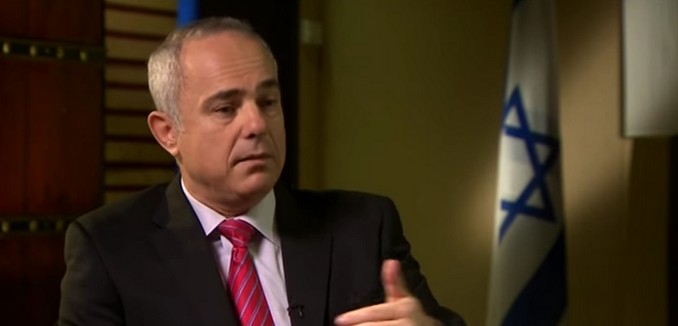Iran has made no significant concessions in its negotiations over its nuclear program, Israeli Intelligence Minister Yuval Steinitz said today. Steinitz made his remarks in a conference call organized by The Israel Project, which publishes The Tower. A recording of the call is available here.
Steinitz noted that Iran has made “some minor, cosmetic concessions on secondary issues, but on the core issue of uranium enrichment capability, they made almost no concessions.”
On this issue of enriching uranium and centrifuges, which is the most important issue, the positions of [President Hassan] Rouhani and [Foreign Minister Mohammad Javad] Zarif are not dramatically different from the positions of former president of Iran [Mahmoud] Ahmadinejad and [former chief nuclear negotiator Saeed] Jalili. Both Ahmadinejad and Rouhani insisted that Iran should preserve all of most of its centrifuges for uranium enrichment. Both Ahmadinejad and Rouhani insisted, actually, that Iran will remain a threshold nuclear state also after the agreement.
Steinitz pointed to two concerns that are particularly worrying for those hoping that Iran, the world’s leading state sponsor of terror, is denied the capacity to construct nuclear weapons. Steinitz said that during the recent negotiations, “the Iranians are trying very hard to put into the agreement two mechanisms or two items that look not that important to the outside, but will enable them in the future to bypass an agreement and enable them to dramatically shorten the breakout time of any possible agreement.”
The first concern is that Iran is demanding the ability to proceed with research and development efforts on more advanced centrifuges that may be up to ten times more efficient than its current generation of centrifuges. As Steinitz said, once R&D on those centrifuges is completed, “in three or four months, they can produce, for example, 2,000 of those much more efficient centrifuges, replace immediately some of the old type of centrifuges with the new type of centrifuges. With 2,000 of the more efficient centrifuges, Iran’s breakout time [to develop a nuclear weapon undetected] could drop to two to three months.”
The second concern, according to Steinitz, is Iran’s desire to partner with rogue states: “If Iran, in the final agreement, can have some kind of research/knowledge exchange participation with other countries, like North Korea,” they will be able to bypass sanctions and restrictions by getting other nations or organizations to do its research or construction for them. Steinitz noted that “It’s well-known that North Korea had very significant involvement in the nuclear project in Syria a few years ago.”
“If these loopholes are not totally closed,” said Steinitz, “it will enable the Iranians to bypass the agreement and to make the agreement meaningless in the future.”
Reports from Vienna support Steinitz’s claim that Iran is refusing to compromise. Reuters reports that “Western officials say Iran has refused to budge on enrichment, despite repeated offers of potential compromises by the six powers, including the United States.”
Tehran may consider keeping fewer enrichment centrifuges as long as they are advanced, to keep the volume unchanged, Western officials say, adding that this represents no compromise at all.
They say the West is willing to compromise but Iran is not largely because Supreme Leader Ayatollah Ali Khamenei has not given the negotiators the freedom to do so.
“The ball is in the Iranian camp and to be honest we have a feeling that we’re treading water at the moment,” a senior Western diplomat said. “The main obstacle is that the decisions have to be made by the Iranian leadership.”
The deadline for negotiations is Monday, November 24.
[Photo: Igal Spivak / YouTube ]




